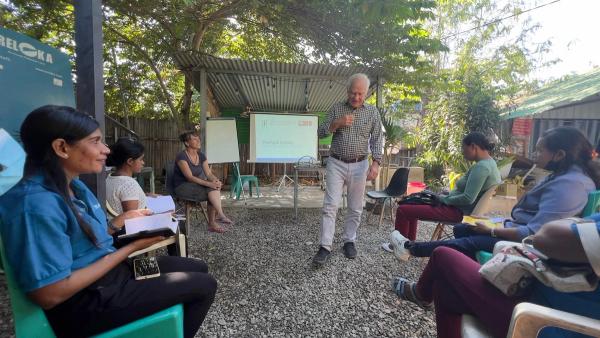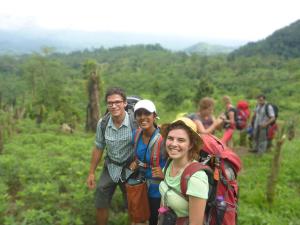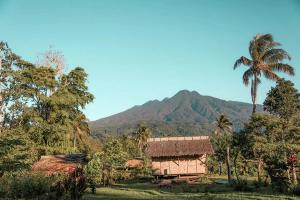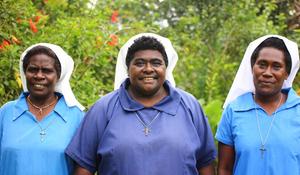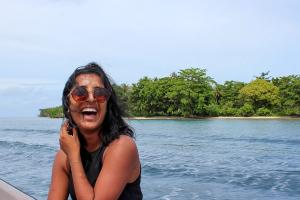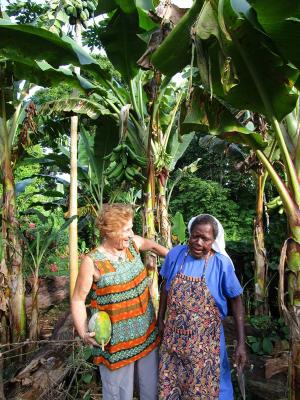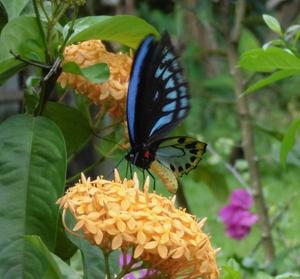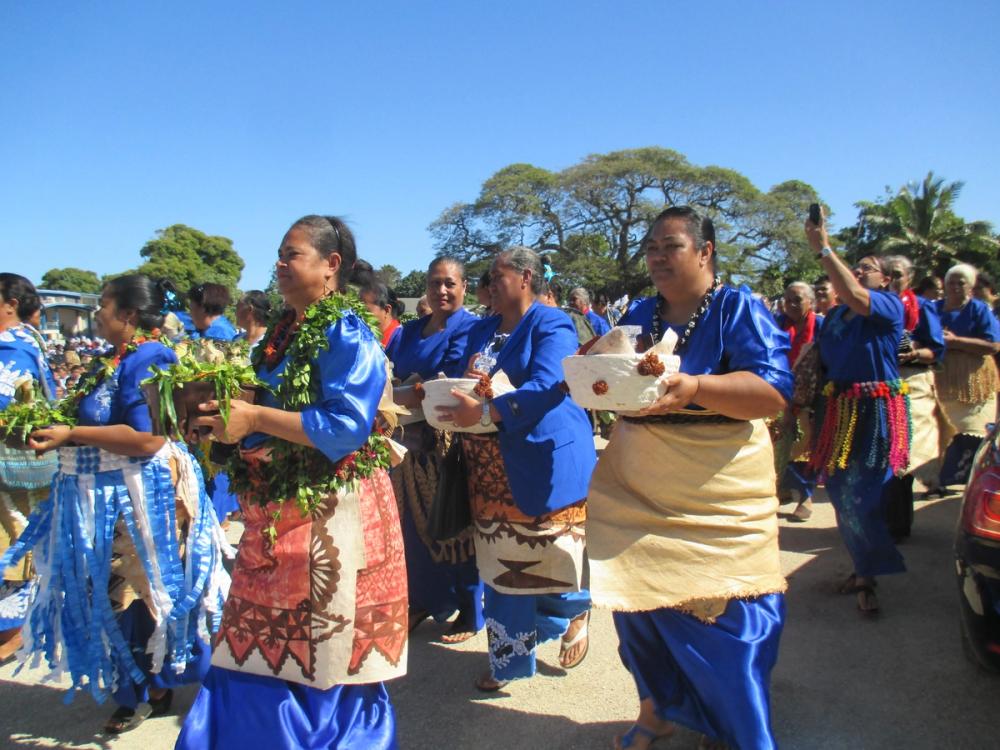

Tonga
The last polynesian kingdom of the pacific
The Kingdom of Tonga is a unique and culturally rich Pacific nation comprising 176 islands divided into four main groups—Tongatapu, Ha’apai, Vava’u, and the Niuas. The country stretches in a narrow arc northward from the Tropic of Capricorn and is famous for its natural wonders, including being one of the few places in the world where you can swim with humpback whales.
Tonga is the only Pacific nation never to have been colonised. Its constitutional monarchy, led by King Tupou VI, is the oldest surviving monarchy in the region, with a lineage dating back to 875 AD. The Prime Minister serves as the Head of Government, with strong traditional structures still influencing daily life and governance.
Our work in Tonga
VSA has built a strong partnership with Tonga over the past 55 years, with a renewed focus on community-led development, resilience, and sustainability. Our collaborative approach involves working closely with government agencies, NGOs, and community groups across priority areas including:
1
Good governance and institutional support
Strengthening leadership and administrative systems for improved public service delivery.
2
Sustainable livelihoods and agriculture
Supporting farming practices, food security, and climate-resilient approaches.
3
Health and wellbeing
Improving healthcare access, health literacy, and community support systems.
4
Education and youth empowerment
Contributing to skills development and inclusive education initiatives.
5
Climate change and environmental resilience
Supporting Tonga’s adaptation to environmental challenges and climate risks.
Economic context
Tonga’s economy is shaped by its geographic isolation, remittances, and limited export capacity. Agriculture and fisheries play a central role in local livelihoods, while tourism offers economic potential. Climate change remains a major threat to both the environment and the economy. Through targeted volunteer assignments, VSA supports local strategies to strengthen economic resilience and protect Tonga’s natural resources.
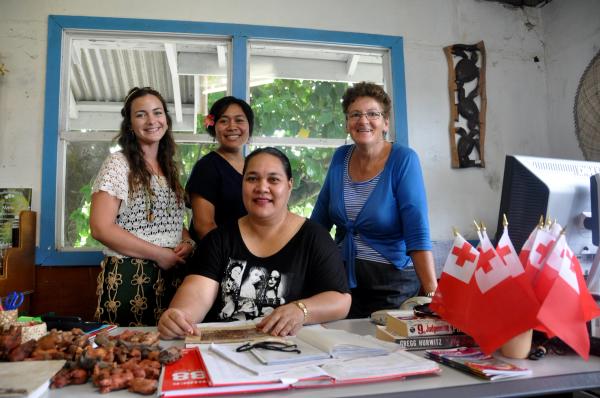

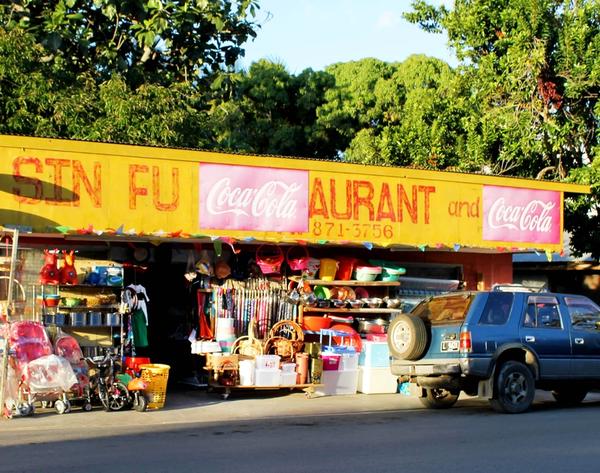

Development challenges
Tonga is making progress in development but faces several ongoing challenges:
- Vulnerability to natural disasters and climate change
- Limited access to specialised healthcare
- High reliance on remittances and imported goods
- Infrastructure and resource limitations in outer islands
- Maintaining cultural traditions while promoting social equity
VSA’s partnerships in Tonga focus on locally led, sustainable solutions that empower individuals and communities to overcome these challenges.
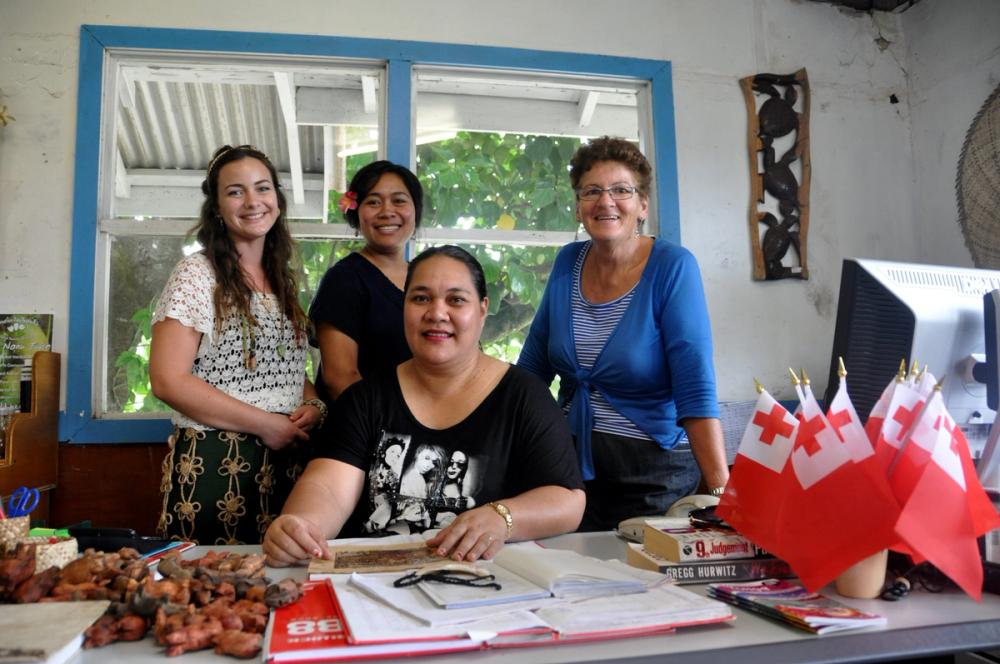

Things to consider when living and volunteering in Tonga
1
Language and culture
VSA assignments last up to two years, so local language training is important. VSA provides basic language training at the start of assignments with follow-ups if necessary during the assignment.
2
Housing and living conditions
Secure accommodation is provided for volunteers with basic furnishings, running water, a kitchen with gas or electric cooking as well as indoor bathroom facilities with a flush toilet. Volunteers have access to telephones, the internet, restaurants, public transport systems and 24-hour power (although power outages are a regular occurrence). A ‘surge breaker’ or ‘spike buster’ is advisable to protect sensitive appliances from Tonga’s erratic power supply. Tonga has the same electrical plug socket and voltage as New Zealand. We advise our volunteers to boil drinking water, use a purifier or drink bottled water.
3
Dress standards and traditional dress
Tonga has a big expatriate community, and most are used to seeing Western ways of dressing, with many locals dressing very similarly. However, it is important to remember that volunteers have different motivations for living and working in Tonga from most expatriates. We encourage our volunteers to dress conservatively. Loose-fitting, light, cotton clothing is best. Dresses, skirts and t-shirts are commonly worn – sleeveless is acceptable. Traditionally women must cover their knees and elbows and men usually dress in pants or tupenu (cloth wrap skirt). Tongans generally swim fully clothed.
The ta'ovala is a traditional woven mat worn by men and women over the tupenu (a single-coloured wrap). It is formal attire and it shows respect and authority. There are different kinds of ta'ovala for different occasions. But the most common are made from the leaves of the pandanus tree.
Kafa is a braided rope, used as a belt to hold up the ta'ovala worn by both men and women. Traditionally it is made from the inner fibre of the coconut husk braided together strand by strand. Some kafa are made from human hair from a dead relative. This type of kafa is held in very high regard and treasured by the family.
Kiekie is worn around the waist by women only and can be very decorative. It is often made from the pandanus tree and can be best described as a belt with strands that hang down below the knee.
4
Health and Safety
Precautionary measures are recommended, such as insect repellent and long sleeves/ trousers in the evening if outside and a mosquito net. Skin infections can develop quickly so have a good supply of plasters, antibiotic cream and antibiotics. Medical care is limited in Tonga, with Tonga’s main hospital (Vaiola Hospital) being a 10-minute ride from the capital, Nuku’alofa. While hospital staff are mostly well-trained, the equipment and facilities are limited
As a volunteer, you would be covered under VSA’s medical insurance policy, and are required to undertake a medical examination (or complete a medical questionnaire for short-term volunteers) and have necessary inoculations before being approved to depart for the field.
VSA provides all selected volunteers with a thorough security briefing that covers specific local issues prior to departure. In general, there are no problems moving around Tonga although you will be given a more detailed security briefing upon arrival. Take care when walking alone and avoid this at night.
5
Banking and finances
Banks in Tonga include ANZ, Bank of Tonga and Westpac. Volunteers can open a local bank account once they arrive in Tonga where monthly living allowances are paid into. You will find ATMs in town with an increasing number of shops also having EFTPOS machines. Some hotels/guest houses accept foreign credit cards. Local currency is TOP - Tongan Pa'anga. Visit oanda.com for current exchange rates.
6
Cell phones and email
Tonga has two cellular providers, Digicel (Tonga) Limited and Tonga Communications Corporation (UCALL). Coverage is generally good in urban areas but fades quickly as you move to rural locations. Internet connections are readily available at reasonable speeds and internet cafes are available in town with wireless hotspots around businesses and hospitality complexes.
7
Town amenities
In town, there is a post office, travel agents, local businesses, as well as small shops, cafes and a supermarket selling imported food and a vegetable market with competitive prices. The NZ High Commission is also in the centre of town.
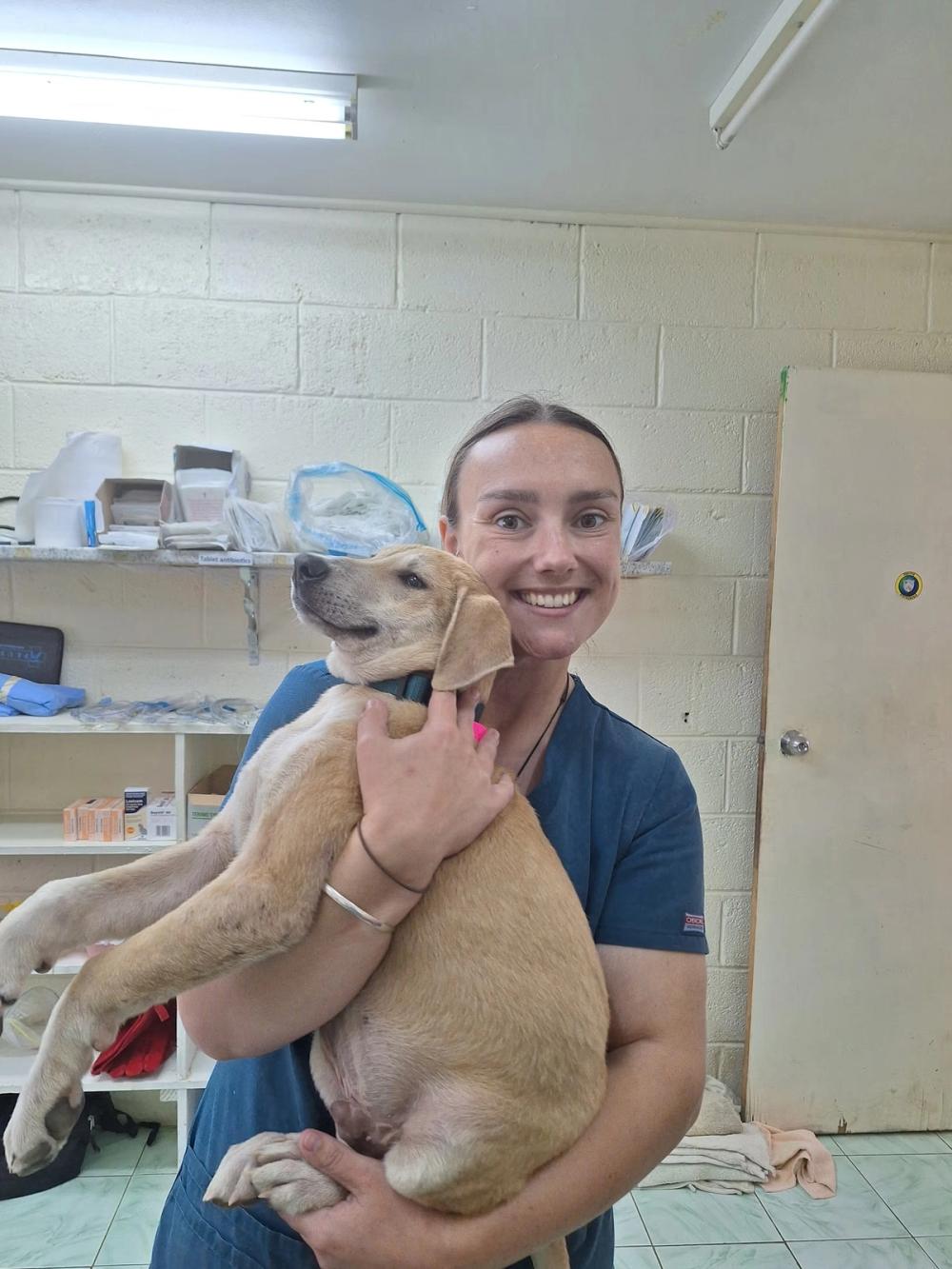

Making a difference as a Veterinary Nurse volunteer in Tonga
Open positions
Let’s work together to create meaningful change.
Want to become a partner?
We work in partnership with government agencies, NGOs, and community groups to share skills, strengthen systems, and support locally driven development.
If your organisation could benefit from volunteer expertise in areas like education, health, agriculture, governance, or climate resilience—we’d love to hear from you.
